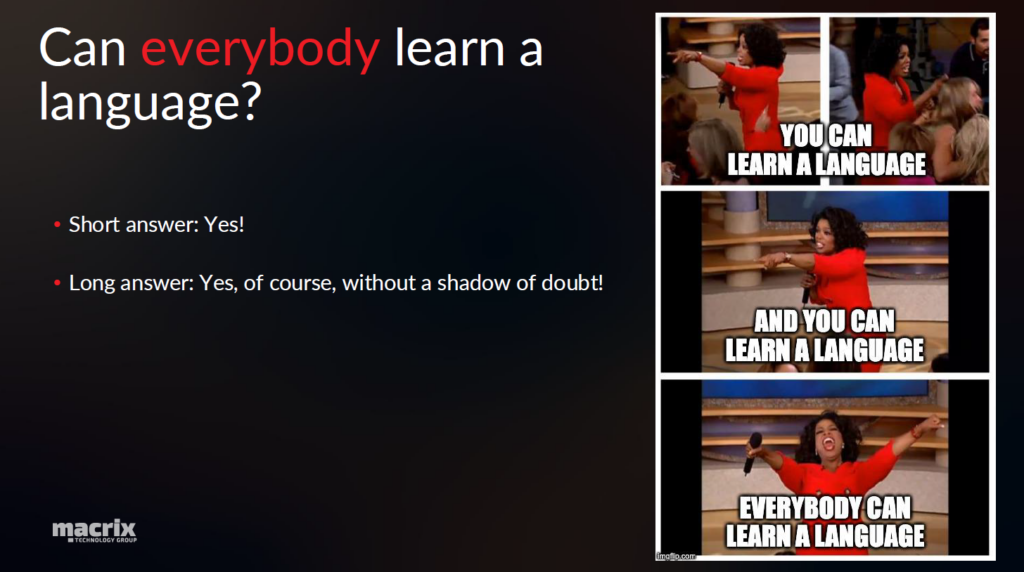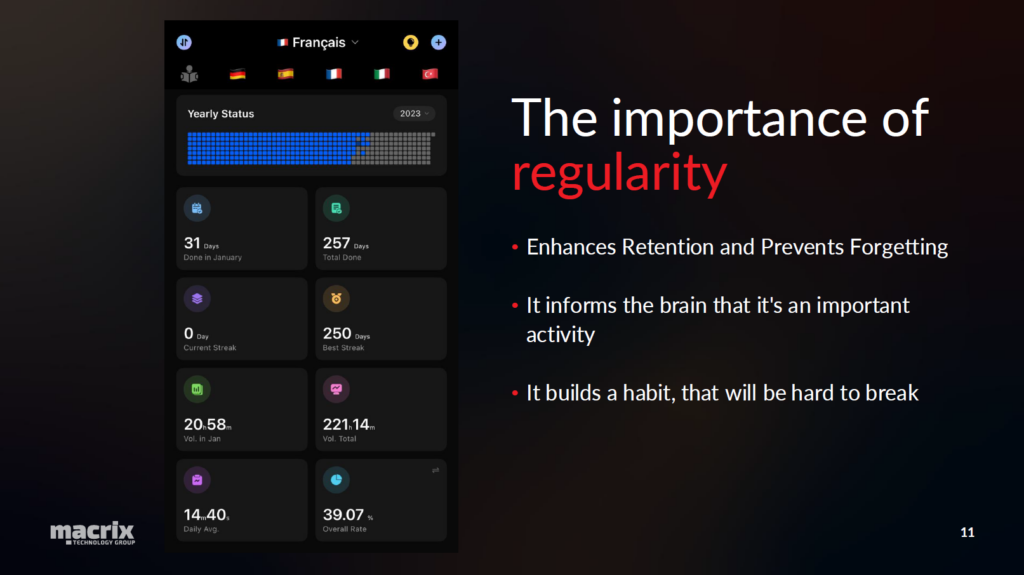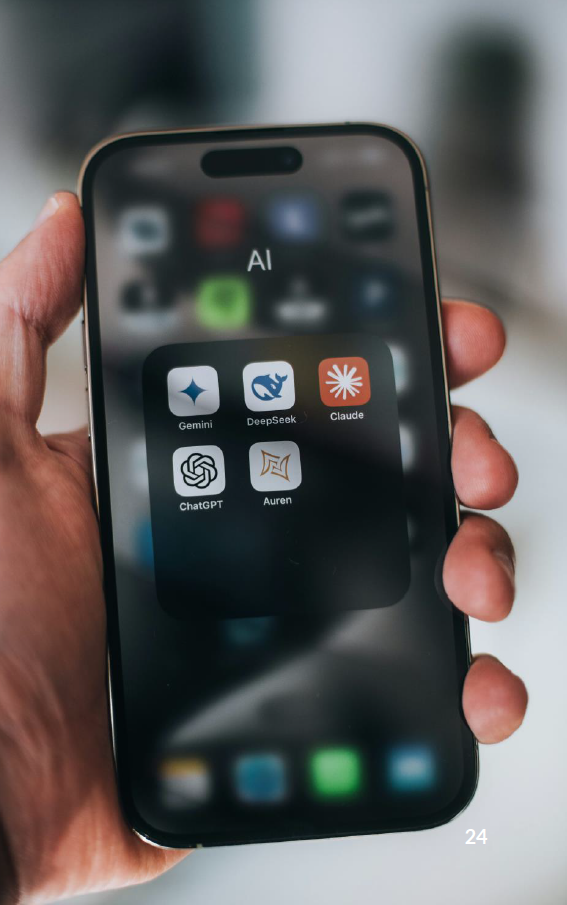Last week, our Software Tester, Mateusz Michno, hosted an inspiring internal meetup about making language learning an enjoyable part of everyday life.
Mateusz, a passionate language learner and self-taught polyglot, shared practical tips, debunked common myths, and emphasized how both mindset and consistency can shape anyone’s journey toward language learning. His talk inspired team members from various departments, especially those interested in learning a new language alongside their professional development.

Mateusz debunked the myth that language learning is reserved for the naturally gifted. In fact, many polyglots admit they started without any special talent, just the right mindset and habits.
He explained that the biggest factor isn’t talent, but exposure, regularity, and a relaxed mindset.
“If you treat it like a hobby and enjoy the process, you’ll keep coming back to it.”
While it’s true that children may have an advantage if they start early, adults can still reach high proficiency. The main difference? Exposure and attitude.
Mateusz compared typical classroom hours (e.g., 100 hours/year) to the thousands of hours children are immersed in language just by living. But another major difference lies in fear: children aren’t afraid of making mistakes. Adults often worry about sounding silly or being judged, and that fear slows them down.
The lesson from kids, Mateusz explained, it’s simple:
“Don’t overthink it. Speak, make mistakes, and move on.”
Mateusz isn’t a fan of grammar-first methods.
“You can’t learn a language from grammar. But you can learn grammar from the language,” he said.
Instead, he encourages extensive listening and reading to naturally absorb patterns, just like kids do when learning their first language.

One of the most memorable points Mateusz made was about habit-building. He argued that 10 minutes every day is more effective than 2 hours twice a week. Daily effort signals to your brain that this activity matters and over time, that creates long-lasting retention.
He encouraged the audience to combine language learning with hobbies they already enjoy like watching thrillers, reading blogs, or listening to music but in their target language.
Learning a language isn’t just about memorizing vocabulary or repeating grammar drills.
It’s about building a set of interconnected skills that help you truly understand and communicate. That’s why Mateusz mentioned the four essential language skills: listening, reading, speaking, and writing and divided them into two categories: input (listening and reading) and output (speaking and writing). Let’s dive into each one.
Input is what we receive: listening and reading. This can be called the “silent period” because you’re not producing language – only consuming it. It’s the most important category and brings the biggest benefits.
Listening
According to Mateusz, listening is the most important skill. After all, language exists to help us understand one another, and most of that happens verbally. Even when reading, we often “hear” the words in our minds, which means good listening builds strong internal pronunciation too.
Reading
There’s intensive reading and extensive reading. Intensive reading involves analyzing the text, translating, and focusing deeply. Extensive reading is for pleasure – reading without overanalyzing every word, just understanding the gist.
Try to make it enjoyable.
Speaking
When should you start speaking? There are different opinions. While some advocate for “speaking from day one,” Mateusz prefers a quieter approach at first. “It can be frustrating not to express yourself fully,” he shared. “Give yourself a silent period if needed, how long it lasts is entirely up to you.”
Writing
As the Latin proverb says: Verba volant, scripta manent – spoken words fly away, but written words remain. Writing helps memory because handwriting connects motor skills and activates more brain areas. Writing helps reinforce memory, especially when done by hand. But even digital journaling can be effective. No one to check your work? Tools like ChatGPT can offer helpful feedback.
In the final part of his talk, Mateusz explored how artificial intelligence (AI) can act as your personal language coach. Tools like ChatGPT or NotebookLM can help with:
“Even without a language partner,” Mateusz said, “AI can simulate one. You’re never truly alone in your language journey.”

Mateusz’s approach to language learning is refreshing and empowering. Instead of focusing on perfection or rigid study schedules, he encourages enjoyment, consistency, and using tools that make the journey easier.
Whether you’re just starting your first foreign language or rediscovering one you learned years ago, Mateusz’s advice stays the same:
Keep it light. Stay consistent. And most importantly, enjoy the ride.

